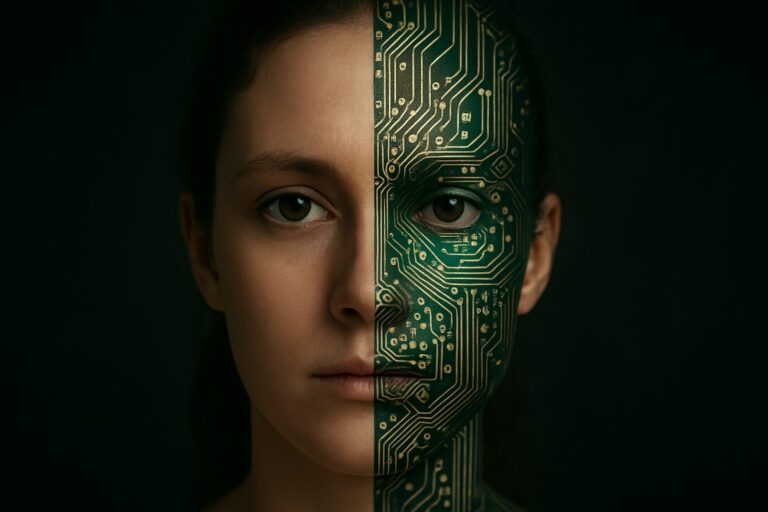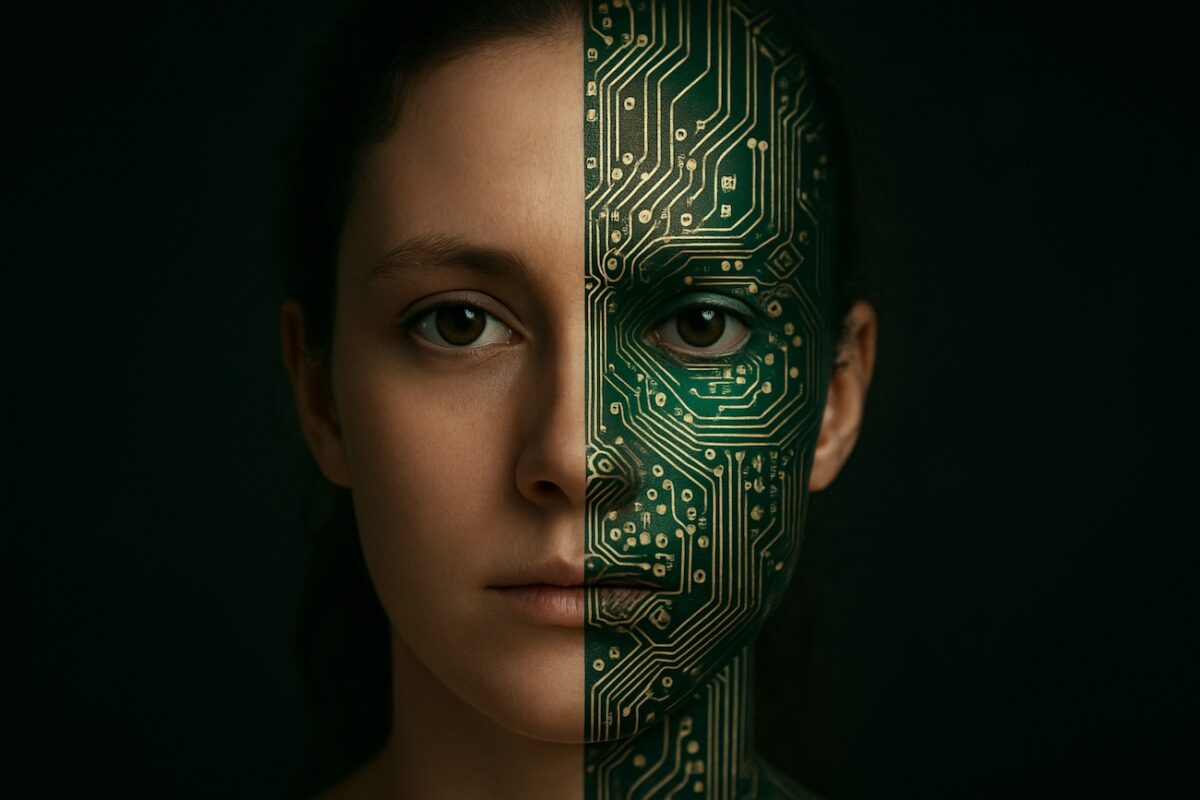When ChatGPT was released in November 30, 2022, it seemed as if that was the day when the world woke up and first became aware of artificial intelligence (AI). However, the concept has been lurking on the periphery of global consciousness for decades. In the 1940s, John Von Neumann, the genius behind nuclear fusion and the hydrogen bomb, was already pondering the seemingly limitless capacity of computing devices in the future. Norbert Weiner in the1950s was defining the nature of programmed feedback systems in computers and the potential to design machines that could be taught to learn. And, of course, Alan Turing was proposing a test that could assess the capacity of an artificial device to display human intelligence. So, AI is not something new to the 21st century.
Literature mirrors the general culture. There has been a recent explosion of books in which AI is the central plot device moving the narrative forward to endings that range from a utopian fulfillment of human destiny to the catastrophic collapse of civilization and the annihilation of humankind. But AI infiltrated the literary space several decades ago. Philip Dick imagined a world in Do Androids Dream of Electric Sheep? where cyborgs were being hunted down because of fear that they might take over the world. In 2001: A Space Odyssey by Arthur C. Clarke, a robot named Hal murders nearly all the crew of a spaceship on a planetary mission because of a programming error.
Speak by Louisa Hall is more recent addition to the AI library. But it was published several years before large language models became a routine tool to plan a vacation or write a letter of recommendation. Is it still worth reading in 2025?
The novel is a composite narrative centered around five interwoven stories spanning the time period from 1663 to 2040. In the first narrative, a young Puritan girl who finds herself in an unwanted marriage, records her thoughts in a diary that she is writing on a treacherous ocean voyage to America. Fast forward to the 20th century and we meet Alan Turing who is writing letters to the mother of young man to whom he was emotionally attached and who died prematurely. He is troubled by his inability at times to communicate with people. A decade later we meet Karl and Ruth Dettman, a couple whose families escaped Nazi Germany but under vastly different circumstances. The husband, Karl, is a computer scientist who has developed a program named MARY to enable computers to interact with humans. Ruth, his wife, is a historian who has built a career centered on the publication of old diaries like the one written by the young woman traveling to America. She is trying to convince Karl to expand the memory of his computer program and enrich it with more human material, but Karl stubbornly refuses because he is concerned about the power of his program to overwhelm its users if its database is expanded. Finally, we jump ahead to 2040, and we read the transcripts of the trial of Stephen Chinn, a man who is being prosecuted for the production of robots that are too life-like. Chinn is being accused of causing physical and psychological harm to the people who have used his robots and of weakening normal relationships between people. A young adolescent named Gaby, who was given a doll powered by a version of MARY, is one of his alleged victims. His own personal recollections are folded into the trial proceedings, as he tries to describe his intentions, justify his actions, and make amends for where they may have gone awry.
Taking stock of our world today, there is clear evidence that AI can improve the day-to-day lot of people, make life more convenient and efficient, and promote better health outcomes. However, much of the current angst that permeates discussions of AI is focused on the potential economic and sociopolitical consequences. There is fear that systematic adoption of AI will lead to widespread loss of jobs and financial distress for people left behind. The generation of false data and uncontrolled dissemination of unfiltered information may, it is feared, foster social unrest and destabilize democratic institutions.
All of these predictions, for good or for bad, center on the word “intelligence.” If it is defined as the creative use of information towards a specific goal– my definition, to be sure — then it exists along a gradient and there is not an opposing term. In that case, the mixed picture about the future of AI seems accurate. Humans can process information to both noble and destructive ends. If machines are provided information by humans, then it is likely that there will be worthy and flawed outcomes. It is not a reflection of the logical structures or neural networks that are built into us as humans or artificially placed into machines. It simply is the nature of intelligence. Information is agnostic and it can be processed in a limitless number of ways; there is no guarantee of what will happen when it is processed.

On the other hand, if we center our predictions on the word “artificial,” there is an opposing term, namely “genuine.” Speak looks beyond AI as intelligence and forces us to think about its impact on interpersonal communication and interactions. The design of the robots that are being created in fiction and in our world of 2025 is steadily improving. The voices become more lifelike, the reactions more emotionally appropriate, the reactions more convincing. They display keen intelligence and manifest seeming empathy with their handlers. Like the artificial friend in Klara and the Sun by Kazuo Ishigura, the robots may even appear to have more feelings and awareness of the ever-changing psychological state of their owners than family members and friends. But it will always remain artificial. Speak forces us to ponder whether interactions between human beings have an element that cannot be programmed, that is not simply manipulation of information. It is that piece that accounts for the genuine nature of relationships between people and it is that component that is vital for human growth and maturation. The interconnected stories in Speak raise the concern that reliance on AI, in whatever embodied form it takes, to provide support and companionship may inevitably fail and leave damaged humans in its mechanical wake. The intelligence of AI may not be sufficient for humans to thrive. It remains difficult to put into words exactly what to call this additional component of human interaction. Thankfully, there is literature, and creative novels like Speak, to help us grapple with what it might be and to help us steer a course where AI is developed thoughtfully with full awareness of its limitations and potential for good and harm.
SPEAK
Louisa Hall
EccoPress, New York 2016, 356 pp
Web image by Medhum.org






